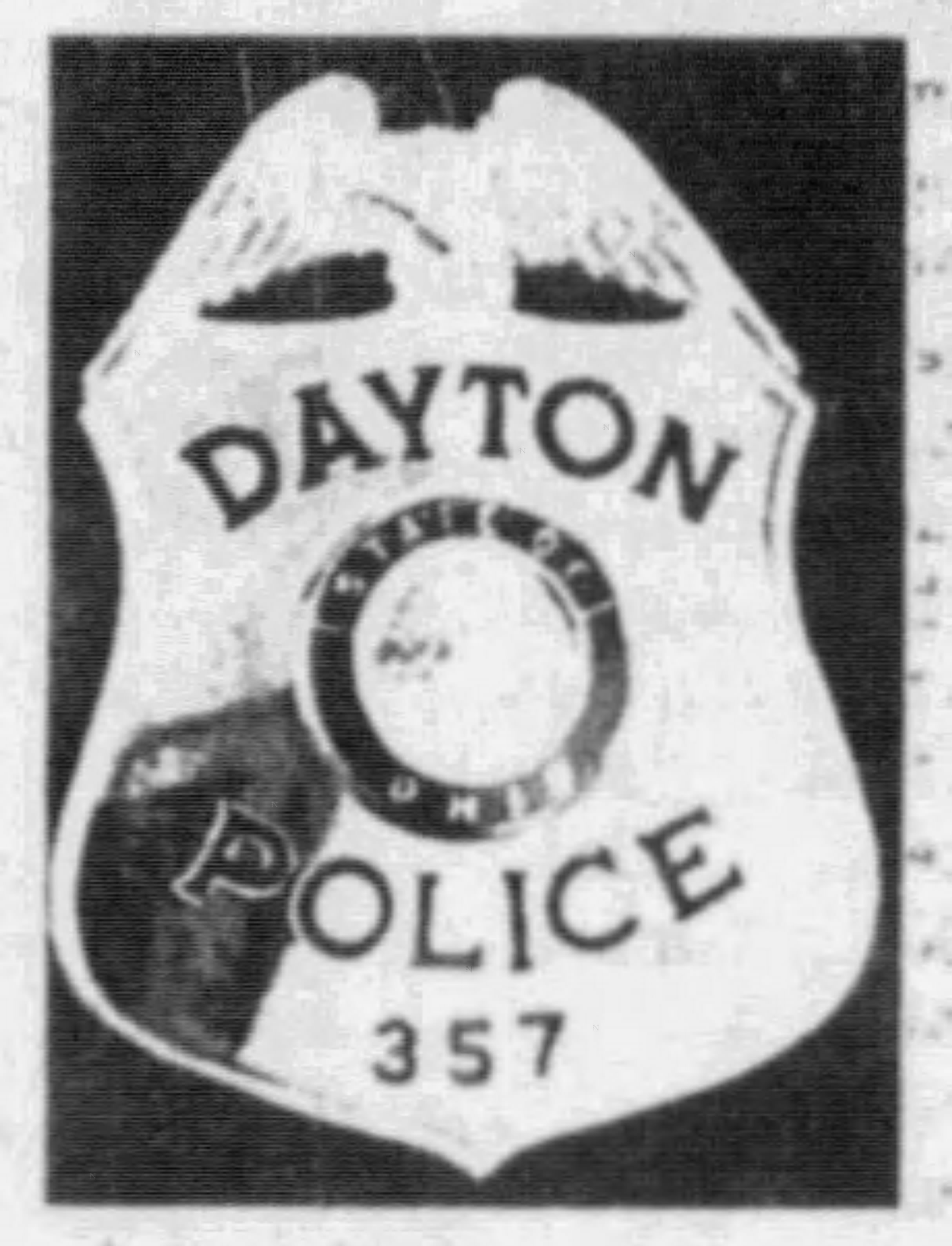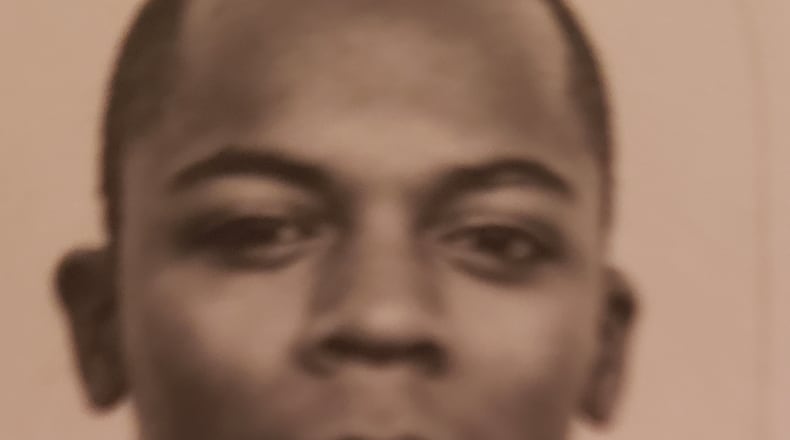He would have been the first Black officer to earn the Medal of Valor. But then Burlong blew the whistle on illegal wiretapping by Dayton police. The Medal of Valor never came.
GEM CITY CONFESSIONS
A project from the Dayton Daily News

Earlier this year the Dayton Daily News published the special series Gem City Gamble: Dayton’s police corruption, gangsters and the downfall of Pete Rose. Following the popularity of the series and requests from readers for more, reporter Wes Hills dug into his notebooks and conducted new interviews for a follow-up series revealing more details about how police corruption shaped the city’s history.
These stories are compiled in a new series we’re calling Gem City Confessions.
Burlong died in 1993 at age 48. He was repeatedly branded a liar by top police and city hall officials, who falsely claimed there was no evidence police were engaged in illegal wiretapping.
“I most definitely think it would be an honorable gesture to award my uncle Dwight the Medal of Valor,” said Crystal Ward, an actor and screenwriter in New York. “He was vindicated over and over years later, but the damage had been done. I believe it is never too late to right a wrong and presenting him with the Medal of Valor won’t add lost years to such a short, cheated life, but it will show that he mattered.”
Later in 1970, on Christmas Eve, Burlong was shot below his left eye while responding to an armed robbery where a gunman shot two men in the head, killing one man and seriously wounding the other.
The bullet went in the back part and out the front part of the left side of Burlong’s face. He recovered from his wound.
But his career would never recover from the city turning its back on him.
“I think how they treated my uncle Dwight played a role not only in his early death, but his mental state as well,” Ward said. “Being a police officer is hard enough, but when its city officials and other high-ranking entities put you through hell, something has to give.”
Burlong joined the department in 1967 and was placed on disability retirement in 1987.
Burlong blows whistle
Burlong’s allegations of illegal wiretapping by members of the Organized Crime Squad prompted an internal investigation in 1973.
In January 1975, then- Dayton Police Chief Grover O’Connor announced that the investigation into Burlong’s claims had been completed and had found “no evidence” of illegal wiretapping.
“Burlong has not given any information to support his charge and neither did the officers Burlong told us to question about the case,” O’Connor said. “None of them could give us any names, times or dates.”
O’Connor said the FBI also investigated Burlong’s claims and found them to be unsubstantiated. The FBI declined to comment on the matter and refused to provide The Dayton Daily News with a copy of its investigation.
In 1979, former Dayton Police Detective Sgt. Dennis K. Haller authored the “Anonymous Memo” in which he detailed numerous crimes committed by members of the elite Organized Crime Unit, including his own.
Haller noted how Burlong was publicly disgraced and ran out of the unit. Burlong was also, in a word, a nerd.
“No one liked the way he wore his clothes (he wore is pants too short) and just was not ‘with it.’” Haller said of Burlong. “He did not even have a girlfriend (Burlong was married), which was unheard of on the squad. Burlong decided to ‘blow the whistle’ but he did not realize that he would need the cooperation of the members of the squad.”
At the urging of a police lieutenant, “everyone signed a deposition stating that they had no knowledge of wiretapping and Burlong went back to being in uniform demoralized as hell.”
“This event was to have a very profound, long-range impact on the future of the department,” Haller said. “From that time on, everyone involved in the cover-up did whatever they pleased.”
A decade later, a grand jury indicted nearly 20 then-current and former law enforcement officers on numerous charges, including illegal wiretapping.
O’Connor, shortly before his death in 1993, admitted he approved officers’ use of illegal wiretapping.
‘Black cops are somebody’
The Black Police Officers Association and Black community and civil rights leaders protested when Burlong was passed over for the Medal of Valor. No Black officer had ever won it.
Police commanders said the reason was simply a change in procedure, that their nominations for the award came at a time when the department was revamping its procedure for awarding medals and citations.
The Southern Christian Leadership Conference responded by presenting the two officers awards for “valor and duty” and for “outstanding community bravery beyond the call of service.”
While presenting the award, the Rev. David R. Gilbert said, “Black folk have just found out that Black cops are somebody.”
“It is a disgrace and an insult to the Black people to have only 23 Black police officers out of a force of 422 police officers.” He also noted there were no Black sergeants, lieutenants or captains on the Dayton police force.
“We are part of this city, and do not fool yourself, we are in Dayton to stay and will no longer stand idly by and permit this unjust system to exist,” Gilbert vowed.
A chilling effect
Former Crime Unit Detective Gerald Brame and others said Burlong’s experience discouraged them from reporting wrongdoing.
Brame, who died in 2014, was interviewed in 1984. He was then chief of police and safety at the Central Ohio Psychiatric Hospital in Columbus.
He described what happened to him after he reported how police used sledgehammers and a chainsaw to destroy a bootleg joint. He said he used a sledgehammer to break out the window of a car to arrest a drug dealer who had threatened him.
The bootleg joint looked like it had been struck by a tornado, Brame said. “The plumbing was pulled out of the wall. The jukebox was destroyed. The windows were broken.”
After reporting the incident, Brame, who received numerous commendations — including the Medal of Valor — said he was warned by his supervisor that he “could be charged with aggravated assault” on the drug dealer.
Shortly afterwards, Brame said he was told he “didn’t have enough street experience” and transferred to night-shift patrol duty.
About a week later, Brame said he “found a freezer-bag-sized bag of marijuana (about two pounds)” in a first-aid kit in the trunk of his car.
After dumping the marijuana in a sewer, Brame said he “drove around, thinking, trying to figure my next move, my next plan. I think I even cried a little bit, you know, those (expletive) would be that low to try to set me up.”
Brame said he never reported the marijuana incident because of what happened to Burlong.
“They made him look ridiculous,” Brame said.
“They discredited him on the tapes (illegal wiretaps) and I heard the tapes.
“I didn’t want to play those games for the rest of my career,” Brame said for why he left the department in 1975.
‘He will always be my hero’
Ward said her uncle inspired her to become a cop.
“My uncle Dwight was the father I never had,” Ward said. “I remember him working on safety patrol as a child, and he would stop in his police car on my corner and talk to me on his cruiser speaker. The kids would scream and point, “there goes Black Kojak! I was so proud of him being a cop and I wanted to be just like him.
“I was a police officer for the city of Indianapolis for eight years. I remember when I told my uncle Dwight I wanted to be a cop. He was so disappointed but proud at the same time. He asked me to only stay in the department five years. I understand now why he feared for me.”
Ward vowed she will never allow what the city did to her uncle to tarnish her memories of him.
“The city may have broken his spirit, but they never broke his honor,” she said. “His short life was a testament of bravery and decency. He will always wear the Medal of Valor whether they give it to him or not. He will always be my hero.”



